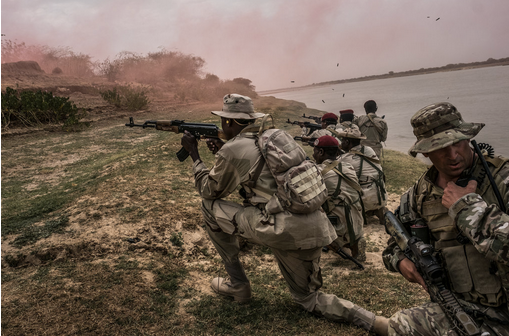Mr. Trump came to office without a clearly articulated philosophy for using the military to fight terrorist groups. He had promised to be more aggressive in taking on the Islamic State — even suggesting during the presidential campaign that he had a secret plan — but had also signaled a desire to rein in the notion of the United States as the world’s peacekeeper and claimed at various points to have opposed the ground invasion of Iraq.
Now, surrounded by generals who have been at the center of a decade-long shift to rely on Special Operations forces to project power without the risks and costs of large ground wars, he is choosing to maintain the same approach but giving the Pentagon more latitude.
Mr. Trump is largely relying on the policies of his two immediate predecessors, Mr. Obama and President George W. Bush, who were also great advocates of Special Operations forces. On Mr. Obama’s orders, SEAL Team 6 commandos killed Osama bin Laden in his hide-out in Pakistan in 2011.
But Mr. Trump seems to have taken that appreciation and reliance to another level. He appointed a retired Marine Corps general, Jim Mattis, as defense secretary, and a three-star Army officer, Lt. Gen. H. R. McMaster, as his national security adviser. Both men have extensive experience with Special Operations forces. And the National Security Council’s new senior director for counterterrorism, Christopher P. Costa, is a retired Special Forces intelligence officer.




